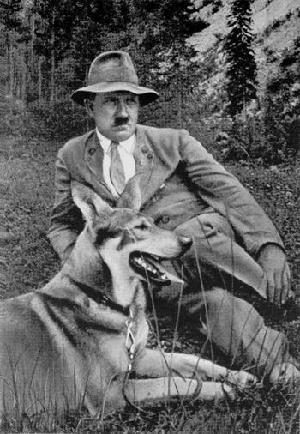Mike_Yates
Literotica's Anti-Hero
- Joined
- Jan 5, 2006
- Posts
- 15,449
Hitler was awarded the iron cross medal for risking his life to save someone's dog during world war 1.
The iron cross medal was the highest award you can receive in the Germany army during those times. Hitler was awarded several of them for his valorous acts in WWI, one of them being for running out into the line of enemy fire and rescuing someone's dog from harm.
That dog was then safely returned to it's owner.

The iron cross medal was the highest award you can receive in the Germany army during those times. Hitler was awarded several of them for his valorous acts in WWI, one of them being for running out into the line of enemy fire and rescuing someone's dog from harm.
That dog was then safely returned to it's owner.

Last edited:
